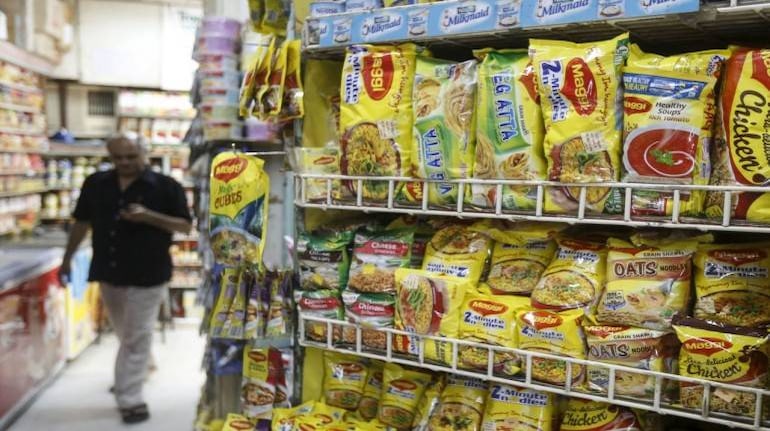



FMCG major Nestle India, which launched iron-fortified and less salted Maggi noodles yesterday, will look to achieve a two-pronged goal. One, to meet government standards on nutrition levels; two, to use the popularity of its Maggi noodles to notch up increased sales.
The Maggi Masala launched under its 'Simply Good' 2020 initiative is aimed to make products healthier.
“With ‘Simply Good’ 2020 initiative, we are building a new, a better, and an even stronger Maggi brand driven by our purpose which is ‘enhancing quality of life and contributing to a healthier future’," Chairman and Managing Director of Nestle, Suresh Narayanan said in a statement.
The fortified Maggi Masala noodles will be available at the same price over the next few week across the 3.5 million retail outlets in India where Nestle products are sold, and the non-fortified products will be phased out, according to a Livemint report.
Maggi will be using Simply Good' drive to address the deficiencies on the Indian platter, among which iron is considered to be a major lack.
According to the 2015-16 National Family Health Survey, about 53 percent females and 22.7 percent male between 15 and 45 years age group suffer from iron deficiency with an almost equal split across rural and urban India.
The company claims that the iron-fortified variant is a small step towards addressing iron deficiency, which would provide for 15 percent of the Recommended Dietary Allowance (RDA).
"Nestle India is exploring ways to fortify its mass consumption products to close the gap and contribute to the larger national objective," Nestle said.
Nestlé’s plan to reduce salt is a part of its larger concern to bring down sodium levels, saturated fats and sugar for improving ingredients. The company claims to have brought down sodium levels by 32.7 percent in Maggi products over the past 10 years.
By 2020, Nestle wants to bring down the salt content to 10 percent across all Maggie products.
The company believes that with 2.5 billion portions of Maggi Masala noodles consumed annually in India, these changes will have a major impact.
Nestle India initiated the change within four months of setting up of a scientific panel on “food fortification and nutrition” by the Food Safety and Standards Authority of India (FSSAI).
The panel is to come up with guidelines to fight malnutrition in the country by making supply of fortified food mandatory for government-backed schemes such as mid-day meals at schools, integrated child development services (ICDS) and the public distribution system (PDS), according to a Livemint report.
However, FSSAI had earlier banned Maggi Masala in 2015 saying that the instant noodles was unsafe and hazardous for human consumption after finding lead in excessive levels and presence of taste enhancer monosodium glutamate (MSG).
After a series of test conducted in India and abroad Nestlé’s Maggi was given a clean chit. And the Bombay High Court lifted a government ban on Nestlé’s popular Maggi noodles.
Discover the latest Business News, Sensex, and Nifty updates. Obtain Personal Finance insights, tax queries, and expert opinions on Moneycontrol or download the Moneycontrol App to stay updated!
Find the best of Al News in one place, specially curated for you every weekend.
Stay on top of the latest tech trends and biggest startup news.